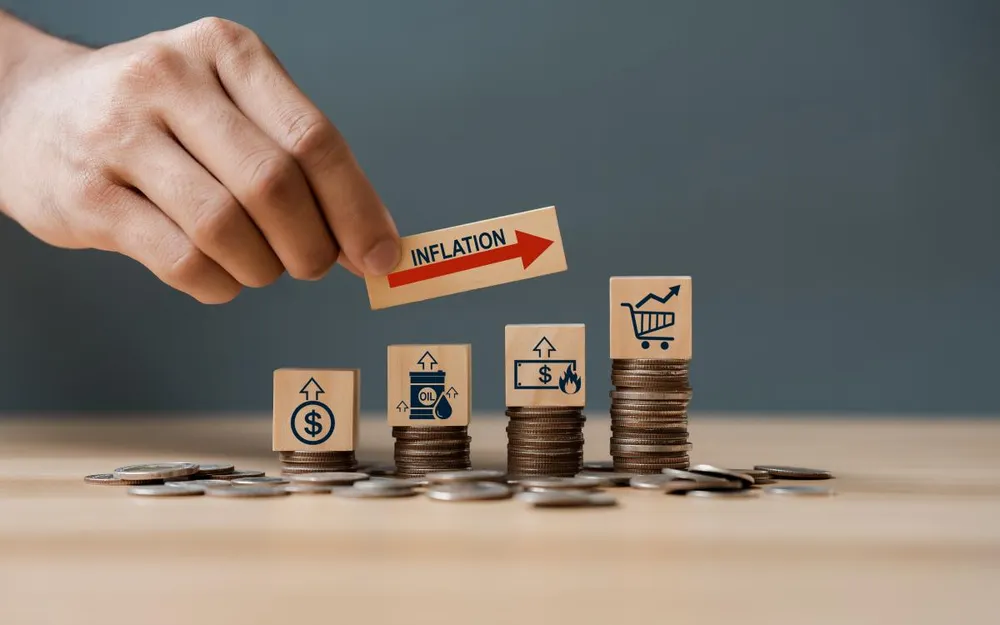
ADB also believes that world inflation is on a downward trend, approaching the pre-pandemic threshold when fuel and food prices will fall. Asia in particular will have an inflation rate of 3.6 percent this year and not the 4.2 percent forecast in April.
Inflation not a worry
Right from the beginning of 2023, many domestic economic experts recognized that the prudent monetary policy in 2022 along with the risk of the world economy falling into recession in 2023, will balance this year's inflation pressure as not too big. Average inflation in 2023 is forecast at 3.5 percent to 4 percent. At this point, after the first six months of the year, with the average Consumer Price Index (CPI) increasing by 3.29 percent over the same period in 2022, the above forecast is now more likely to occur.
Dr. Nguyễn Đức Độ, Deputy Director of the Institute of Economics and Finance, emphasized on the sharp decline of inflation in the first six months of 2023 due to three main reasons. Firstly, the economic growth rate is low, with all components of aggregate demand growing slowly, such as investment and consumption, accompanied by a decrease in exports. Secondly, money supply growth is low. As recorded, the total means of payment as of 20 June increased by only 2.53 percent compared to the end of 2022, which is lower than during the period of the Covid-19 pandemic. Thirdly, interest rates are high.
According to Dr. Nguyễn Đức Độ, from now until the end of the year, the risks of shocks such as a rise in oil prices and exchange rates are similar to that in 2022, which were also not high, and which are favorable for controlling inflation. Dr. Nguyễn Đức Độ feels that in the last year, CPI has only increased by 0.17 percent per month on average. Assuming this pace continues to be maintained in the last six months of the year, inflation over the same period in December is forecast at a level of 1.7 percent, and the average inflation in 2023 will be at 2.5 percent.
Mr. Phạm Văn Bình, Deputy Director of the Price Management Department under the Ministry of Finance, has a similar view in that the movement of the domestic price market is in a favorable direction. The Ministry of Finance, as the Standing Committee of the Government's Price Management Steering Committee, from the beginning of the year has focused on price management and inflation control. With the current domestic and international economic situation not very positive, along with the caution expressed by the State Bank of Vietnam in making monetary policy in the past, inflation in 2023 is likely to continue to decrease and the target of controlling inflation to be below 4.5 percent will certainly be achieved.
Instabilities still ahead
However, it is not entirely excluded that inflation in the last months of the year is still likely to increase. According to Mr. Nguyễn Xuân Định, Price Management Department under the Ministry of Finance, the possibility of a world economic recession is becoming clearer, especially in major economies, with an increasing risk of political and social instability; fall in associations in several countries; strategic and geopolitical competition between countries in the world taking place; financial and monetary markets of developing countries facing many risks; energy security, food security, natural disasters, epidemics, climate change, storms, floods, and droughts, may all cause more disturbances.
At the same time, from July, the basic salaries will increase, leading to an increase in consumer demand for goods, which may lead to an increase in commodity prices. The pressure from the implementation of the market price roadmap for a number of state-managed goods has been delayed in the past. In particular, as is customary, when September begins for the new school year, tuition fees may increase. Food and food prices often increase at the end of the year, resonating with the demand-pull factor of support packages. More importantly, inflation is just one of many factors to measure the health of the economy and people's quality and rising standards of life.
Business confidence
Dr. Nguyễn Đình Cung, former director of the Central Institute for Economic Management, said that other indicators such as credit, fiscal deficit, gloom in the real estate market, the stress in the bonds market, decline in business confidence of investors, are all very big problems nowadays. Mr. Cung believes that the real estate market faces difficulties and legal problems and businesses are stuck in bond issuances and are not confident to expand business investment, which will make it very difficult for the economy to recover in 2023 and even 2024.
Mr. Cung's assessment of business confidence is well-founded. On 10 July, the Association representing the European business community in Vietnam (EuroCham) announced the results of the Business Confidence Index (BCI) in the second quarter of 2023. Accordingly, the confidence index for the Vietnamese market dropped 4.5 points to 43.5 points. BCI shows that the number of negative feedbacks related to the current business situation increased by 10 percent, and by 6 percent for the next quarter. The number of companies that plan to strictly manage their investments in the next quarter increased by 7 percent.
It should be added that the difficulties of the real estate industry alone have negatively affected 40 other important economic sectors of the economy, especially the directly related industries such as construction, manufacturing, tourism, accommodation, catering, finance, and banking. It can be seen that although controlling inflation below the ceiling level is likely to be achieved, there is still a lot of work to be done by regulators and businesses themselves.




















